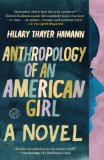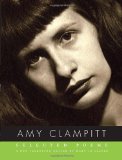Summary | Excerpt | Reviews | Beyond the book | Read-Alikes | Genres & Themes | Author Bio

Reading Vladimir Nabokov's six-hundred page magnum opus, Ada, is much like climbing to the top of a monument, say, Washington, D.C.'s famous obelisk, or Prague's Astronomical Clock Tower: the steep, vertiginous ascent ultimately pays off in a breathtaking view of the landscape below, a landscape you have traversed within the twin cocoons of stairwell and elevator, or in this case, sentence and paragraph, to reach a glorious summit. In other words, it's not a beach read. Cynthia Zarin's bold collection inspired by this tome weighs in at a mere 55 pages of poems, but it stands as its own achievement in its lush distillation of Nabokov's pet themes: time, memory, passion, and the triumph of artifice over fact.
One of the great pleasures of The Ada Poems is its rich imagery firmly based in the sensual world: references to trees, flowers, jewels, animals, insects, colors, and weather abound, helping to ground the poet's more enigmatic musings. In "Birch," Zarin introduces an anthropomorphic tree, its composition ("Bone-spur, stirrup of veins…") echoing the speaker's own body as she climbs the birch with her beloved, his "wrist taut, / each ganglion a gash in the tree's rent / trunk…" This tree might symbolize the Tree of Knowledge in the Garden of Eden (Ada and Van's names even sound like Adam and Eve's; unlike those Biblical innocents, however, Nabokov's naughty lovers know from a young age that they are naked in the Garden, and revel in it); it definitely calls to mind the "arbors of Ardis" where Ada and Van conduct their illicit idylls. Nature, of which Ada was a devoted pupil in her youth, pervades these poems with a heady fragrance: in "Christmas I," "the sweetheart roses tilt their faces / to the piano's black sateen bat wing," while the moon shape-shifts from a quarter to a white-haired man in "Second Dreamscape (New Year's Night)," and ultimately to a "fretted boat, let go" in "Anodyne." Towards the end of the collection, the image of the man in the moon morphs into an aging Van: "By now / the planet's face, seen from that star, has changed / its phase: your raven hair is stippled grey" ("Oblique Strategies").
Although familiarity with Ada isn't strictly necessary for appreciating Zarin's work, those who have read the novel will gain added pleasure from the many allusions that she makes not only to Nabokov but also to other poets, Greek myths, and card games. Zarin is not a poet who leads readers by the hand (her emphasis on that part of the anatomy in "Birch" notwithstanding); like Nabokov, she writes for re-readers, those who will initially succumb to the beauty of her language, then return to the text to savor the allusions that she sprinkles throughout like clues in a mystery novel. "Regime," for instance, begins with the lines "Two days of no word - or three - I imagine / Pound's letter, the cold blue plums…" a reference to Ezra Pound's "The River-Merchant's Wife: A Letter" ("You walked about my seat, playing with blue plums") as well as William Carlos Williams' famous apology for appetite, "This Is Just to Say" ("I have eaten / the plums / that were in the icebox"). Later in the poem, the line "Your voice is gravel, chalk, convoking star" conjures the rhythms of Sylvia Plath's best work. Characters from The Nutcracker, Doctor Zhivago, Hamlet, and Aesop's fables all make appearances in the collection, and in "Christmas I," Zarin engages in the sort of word play that would have delighted Nabokov: "Below, our old tortoise / paces the scorched carpet. On his armoured back / a sparkler shooting red and green. One letter / less, amour is his world."
No less striking is Zarin's command of poetic form: she employs sonnets, couplets, and tercets in addition to an alexandrine, an alphabet poem, and an adaptation of the card game "Oblique Strategies" in a poem of the same name. Her use of the sonnet is particularly impressive, as she extends the limits of a form traditionally used for love poems to craft something far more oblique and mysterious, a 14-line construct that can contain a line as unexpectedly potent as "The black cat's languor, snarled / as yarn, turns into morning's yawning hall / of mirrors" ("Letter Two"). Apart from the wonderful alliteration of the different "a" sounds (black cat, snarled yarn, yawning hall), this image also evokes the feline that customarily adorns the cover of Mikhail Bulgakov's The Master and Margarita (a Russian classic surely known to Nabokov) and the dream-like world of Lewis Carroll's Alice's Adventures in Wonderland, which Nabokov translated into Russian in the 1920s. Lest this all sound forbiddingly serious, "The Damselfly (Second Fly)" riffs on the childhood nursery rhyme, "There Was an Old Lady Who Swallowed a Fly": "I knew a green damsel cut to the quick. / I don't know why she was cut to the quick- / what made her tick?"
In conjunction with her intense yet playful take on Nabokov's masterpiece, Zarin interweaves poems that may reflect more autobiographical experiences than those written in Ada's voice. For instance, "Third Dreamscape," with its reference to the 1980s and recollection of a lovers' trip to Italy as well as the contemporary vernacular of "Late Poem" and its mention of "gas-guzzler[s]" and the Internet, have an immediacy and rawness that the sonnets, for all their baroque loveliness, lack. Is Zarin here purposely confounding our expectations for a set of poems that are based on literature by mixing in more accessible and candid pieces? Whether or not this is the case, this strategy perfectly complements Nabokov's own belief that truth is best presented under the guise of artifice and that the "facts" of a life mean nothing unless sculpted and polished to a brilliant sheen.
![]() This review
first ran in the October 20, 2010
issue of BookBrowse Recommends.
This review
first ran in the October 20, 2010
issue of BookBrowse Recommends.

If you liked The Ada Poems, try these:

Anthropology of an American Girl
by Hilary Thayer Hamann
Published 2011
A moving depiction of the transformative power of first love, Hamann's first novel follows Eveline Auerbach from her high school years in East Hampton, New York, in the 1970s through her early adulthood in the moneyed, high-pressured Manhattan of the 1980s.

by Amy Clampitt
Published 2010
Here is a treasure of Amy Clampitt's verse, for those who are reading her for the first time, as well as for those who have long admired her.
Your guide toexceptional books
BookBrowse seeks out and recommends the best in contemporary fiction and nonfiction—books that not only engage and entertain but also deepen our understanding of ourselves and the world around us.